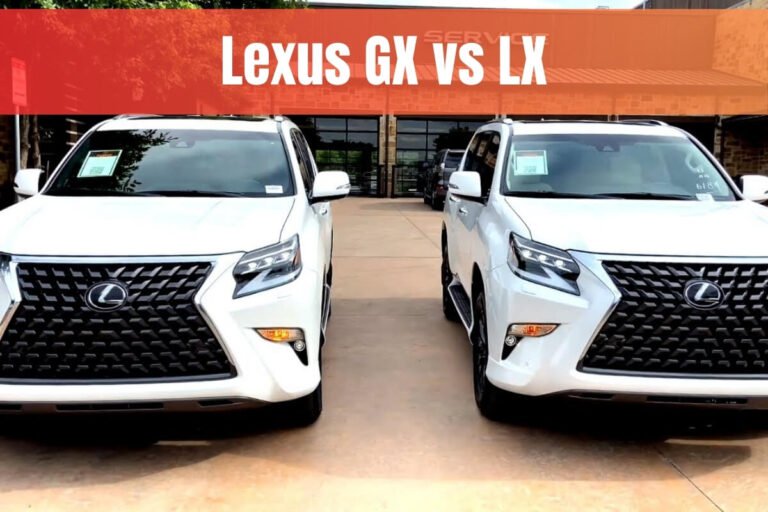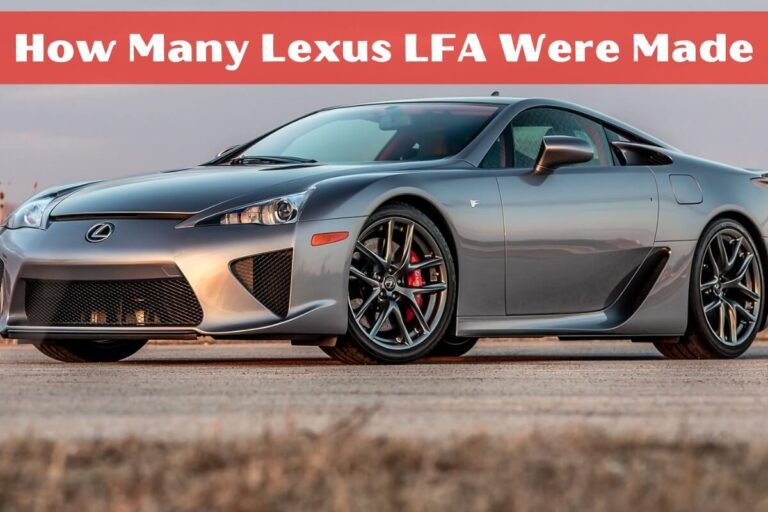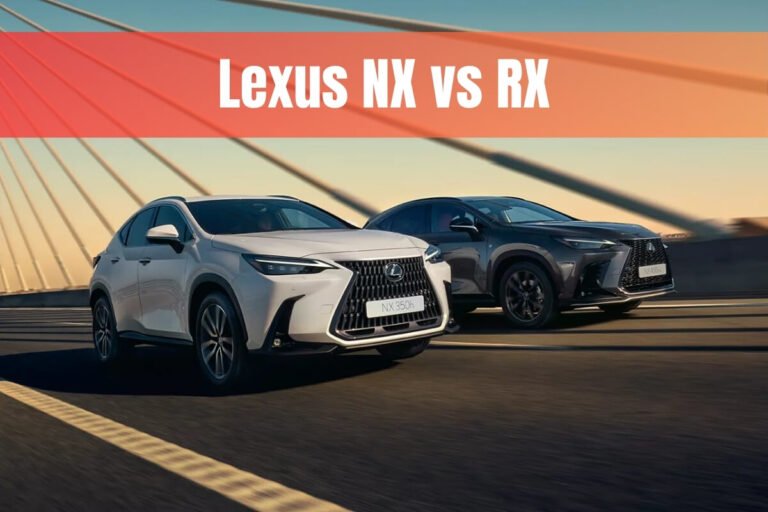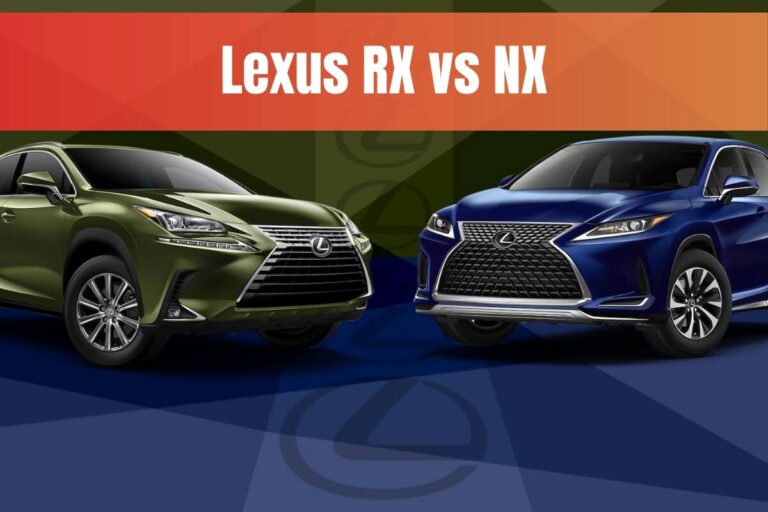Is Lexus Made by Toyota? The Definitive Guide
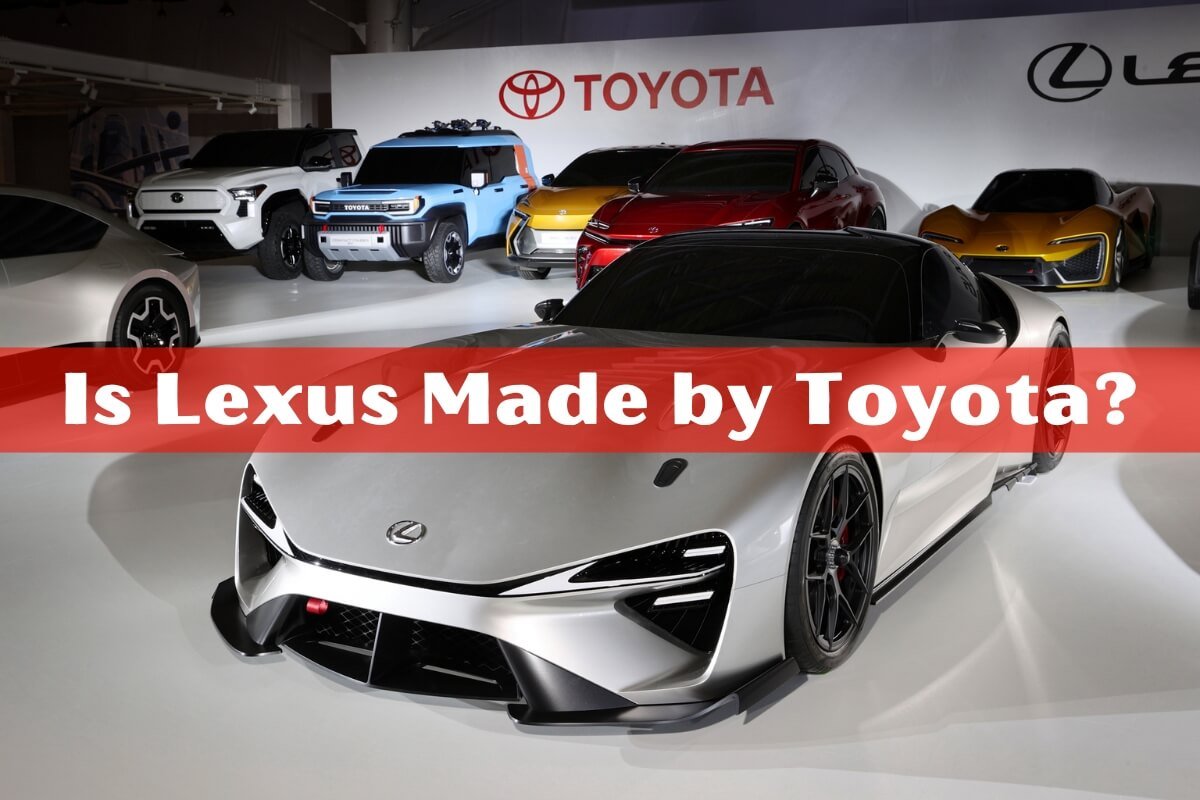
For decades, Toyota has been a household name, renowned for producing reliable, affordable vehicles that cater to the masses. However, in the late 1980s, the Japanese automaker recognized the need to expand its reach and tap into the lucrative luxury car market dominated by German giants like Mercedes-Benz and BMW. This realization led to the birth of Lexus, a brand that would redefine the very notion of luxury for automotive enthusiasts worldwide.
But is Lexus made by Toyota? The short answer is yes, Lexus is owned by the Toyota Motor Corporation, but it operates as a separate luxury vehicle division with its own distinct identity and manufacturing facilities.
Lexus and Toyota – two names that are closely linked, but distinct in their own ways. Have you ever wondered about the connection between these two automotive giants? This article explores their shared past, how they design and build cars, and what sets them apart in terms of brand identity, reliability, and more. Whether you’re a car buff, shopping for a new ride, or just curious, you’ll come away with a clear understanding of the Lexus-Toyota relationship.
What is Lexus?
Lexus is Toyota’s luxury vehicle division, established in 1989 with the aim of challenging the dominance of European luxury brands in the United States and global markets. From its inception, Lexus has been synonymous with refined craftsmanship, cutting-edge technology, and an unwavering commitment to delivering an exceptional ownership experience.
The brand’s debut model, the Lexus LS 400, was a game-changer in the luxury sedan segment. Launched at the 1989 North American International Auto Show in Detroit, the LS 400 captivated critics and consumers alike with its silky-smooth V8 engine, impeccable build quality, and an array of premium features that redefined the concept of luxury for Japanese automakers.
Over the years, Lexus has expanded its product lineup to include a diverse range of sedans, coupes, SUVs, and hybrid vehicles, each embodying the brand’s relentless pursuit of perfection. From the sleek and sporty IS and RC models to the flagship LS and the pioneering RX SUV, Lexus has consistently raised the bar for luxury, performance, and innovation.
Is Lexus Owned by Toyota?
Yes, Lexus is owned by the Toyota Motor Corporation, the world’s largest automaker by production volume. However, it’s crucial to understand that Lexus operates as a separate luxury vehicle division within Toyota, with its own distinct brand identity, manufacturing facilities, and corporate structure.
While Lexus leverages Toyota’s vast engineering resources and expertise, it maintains a high degree of autonomy in terms of design, engineering, and manufacturing processes. This separation allows Lexus to focus solely on crafting vehicles that cater to the discerning tastes and expectations of luxury car buyers.
Lexus has its own headquarters located in Nagoya, Japan, separate from Toyota’s main headquarters in Toyota City. This physical separation further reinforces the brand’s independent identity and enables Lexus to cultivate a unique corporate culture centered around luxury and exclusivity.
Where Are Lexus Vehicles Manufactured?
To meet the global demand for its premium vehicles, Lexus has established manufacturing facilities across multiple locations worldwide. While the brand’s roots are firmly planted in Japan, with several production plants located in the Chūbu and Kyūshū regions, Lexus has expanded its manufacturing footprint to other parts of the world as well.
Here’s a breakdown of the major Lexus manufacturing plants:
- Japan:
- Tahara Plant (Tahara, Japan): Produces the Lexus LS, IS, GX, LX, and RC models.
- Toyota City Plant (Toyota City, Japan): Manufactures the Lexus ES, LX, LFA, and LC models.
- Kitakyushu Plant (Kitakyushu, Japan): Assembles the Lexus CT, HS, and RX models.
- Miyawaka Plant (Miyawaka, Japan): Produces the Lexus ES, IS, RX, NX, and UX models.
- Susono Plant (Susono, Japan): Manufactures the Lexus SC model.
- North America:
- Toyota Motor Manufacturing Canada, Inc. (Cambridge, Ontario, Canada): Assembles the Lexus RX and RX Hybrid models.
- Toyota Motor Manufacturing Kentucky, Inc. (Georgetown, Kentucky, USA): Produces the Lexus ES model.
By strategically locating its manufacturing facilities across multiple regions, Lexus can efficiently cater to the diverse demands of its global customer base while maintaining the highest standards of quality and craftsmanship for which the brand is renowned.
Key Milestones in Lexus History
The journey of Lexus, from its inception to its current status as a leading luxury brand, has been marked by numerous milestones and achievements. Here are some of the key events that have shaped the brand’s rich history:
- 1983: Toyota initiates “Project F1” (Flagship One), a top-secret endeavor aimed at developing a world-class luxury vehicle to compete with the best European offerings.
- 1989: After years of meticulous planning and research, including market studies in Laguna Beach, California, to understand the lifestyles and preferences of wealthy Americans, Lexus is officially launched with the debut of the Lexus LS 400 flagship sedan.
- 1991: Just two years after its introduction, Lexus achieves a remarkable feat by becoming the top-selling luxury import brand in the United States, surpassing both Mercedes-Benz and BMW.
- 2003: The Lexus RX 330 becomes the first Lexus model to be assembled outside of Japan, with production taking place in Ontario, Canada. This milestone marks the brand’s expansion into global manufacturing.
- 2019: Lexus celebrates a significant achievement by selling its 10 millionth vehicle globally, solidifying its position as a dominant force in the luxury automotive market.
These pivotal moments not only highlight Lexus’s unwavering commitment to excellence but also showcase its ability to adapt and evolve in an ever-changing automotive landscape.
How Does Lexus Differ from Toyota?
While Lexus and Toyota share a common lineage and certain engineering resources, the two brands have distinct identities and target different segments of the automotive market. Here are some of the key differences between Lexus and Toyota:
Brand Positioning and Identity
Lexus is positioned as a luxury brand, catering to consumers who seek premium quality, refined craftsmanship, and an elevated ownership experience. In contrast, Toyota is a mainstream brand focused on providing reliable, practical, and affordable vehicles for the masses.
This difference in positioning is reflected in the brands’ respective marketing strategies, dealership experiences, and the overall perception of their vehicles in the automotive world.
Vehicle Performance and Luxury Amenities
Lexus vehicles are designed with a strong emphasis on performance, luxury, and cutting-edge technology. From powerful V8 engines and finely tuned suspensions to premium interior materials and advanced infotainment systems, Lexus models aim to deliver an exhilarating driving experience coupled with unparalleled comfort and convenience.
On the other hand, Toyota prioritizes practicality, reliability, and affordability in its vehicle offerings, catering to a broader range of consumers who value functionality and value for money.
Pricing and Target Market
Lexus vehicles typically command higher price points than their Toyota counterparts, reflecting the brand’s focus on luxury and exclusivity. This premium pricing aligns with the expectations of luxury car buyers who are willing to pay a premium for superior quality, performance, and prestige.
Toyota, on the other hand, targets a wider spectrum of consumers with varying budgets, offering vehicles at more accessible price points to cater to the mass market.
Shared Components and Platforms
While Lexus and Toyota operate as distinct brands, they do share certain components and platforms in select vehicle models. For example, the Lexus LX SUV shares its platform and underpinnings with the Toyota Land Cruiser, while the Lexus RX crossover is architecturally related to the Toyota Highlander.
In these cases, Lexus differentiates its models through distinctive exterior styling, premium interior materials, and enhanced performance capabilities, ensuring that they maintain their luxury brand identity and appeal.
Reliability: Lexus vs Toyota
Both Lexus and Toyota are renowned for their exceptional build quality and reliability, consistently ranking among the top performers in industry surveys and consumer reports. However, when it comes to a direct comparison, Lexus often edges out Toyota in terms of dependability ratings.
Lexus has consistently topped the J.D. Power Vehicle Dependability Studies, which measure the reliability of vehicles after three years of ownership. This remarkable achievement can be attributed to several factors:
- Stricter Quality Control: As a luxury brand, Lexus vehicles undergo more stringent quality control measures during manufacturing, ensuring that every aspect of the vehicle meets the highest standards of excellence.
- Premium Materials and Components: Lexus vehicles are built with high-quality, premium materials and components that are designed to withstand the test of time. From the use of soft-touch surfaces and real wood accents in the interiors to the implementation of robust and durable powertrains, Lexus leaves no stone unturned in ensuring long-lasting reliability.
- Diligent Ownership and Maintenance: Lexus owners tend to be more meticulous when it comes to adhering to recommended maintenance schedules and servicing their vehicles at authorized dealerships. This diligence contributes significantly to the longevity and dependability of Lexus vehicles.
While Toyota vehicles are also known for their reliability, the added attention to detail and stricter quality control measures employed by Lexus give the luxury brand a slight edge in terms of overall dependability ratings and long-term ownership satisfaction.
Frequently Asked Questions About the Lexus-Toyota Connection
As the relationship between Lexus and Toyota continues to intrigue automotive enthusiasts, a few frequently asked questions arise. Let’s address some of the most common queries:
Do Lexus and Toyota Share Engines and Parts?
Yes, Lexus and Toyota do share certain engines and parts across their respective vehicle lineups. This sharing of components is a strategic decision that allows both brands to leverage Toyota’s vast engineering resources and expertise while maintaining cost-efficiency.
For instance, the Lexus IS and GS sedans share their powertrains with various Toyota models, ensuring that Lexus can offer reliable and proven engines while still delivering a premium driving experience.
However, it’s important to note that Lexus often tunes and refines these shared components to meet the brand’s higher performance standards and to align with the luxury driving experience expected from its vehicles.
Can You Buy Genuine Lexus Parts at a Toyota Dealer?
Generally, no. While Lexus and Toyota share some components, their respective dealerships are not authorized to sell genuine parts from the other brand. This separation is intentional, as it helps maintain the distinct identities and exclusivity of each brand.
If you own a Lexus vehicle, it’s recommended to purchase genuine Lexus parts and accessories from authorized Lexus dealerships to ensure compatibility, quality, and proper fitment. Conversely, Toyota owners should source genuine Toyota parts from Toyota dealerships.
Will Using Toyota Parts Impact Lexus’ Prestige vs. German Rivals?
The use of shared Toyota components in certain Lexus models has raised concerns among some enthusiasts about whether it could diminish the brand’s prestige when compared to its German luxury rivals, such as Mercedes-Benz and BMW.
However, it’s important to recognize that Lexus strategically limits the sharing of components to select models and systems, ensuring that the core driving experience and luxury attributes remain distinctly Lexus. Additionally, the brand’s unwavering commitment to quality control and refinement helps mitigate any potential impact on its prestigious reputation.
Many industry experts and analysts agree that Lexus has successfully carved out a unique identity within the luxury automotive space, and the judicious sharing of components with Toyota has not significantly affected its standing among discerning luxury car buyers.
Final Checkpoint
In conclusion, the relationship between Lexus and Toyota is a fascinating one, exemplifying how a mainstream automaker can leverage its resources and expertise to create a successful and respected luxury brand. While Lexus is undoubtedly owned and backed by the Toyota Motor Corporation, it has established itself as a distinct entity with its own manufacturing facilities, design philosophy, and unwavering commitment to delivering an unparalleled luxury experience.
From its humble beginnings with the groundbreaking LS 400 sedan to its current status as a global force in the luxury automotive realm, Lexus has consistently pushed the boundaries of innovation, craftsmanship, and performance. By combining Toyota’s engineering prowess with a laser-sharp focus on luxury and exclusivity, Lexus has carved out a unique niche in the automotive world, captivating consumers with its relentless pursuit of perfection.
Whether you’re a lifelong Lexus enthusiast or simply an admirer of automotive excellence, the journey of Lexus and its connection to Toyota is a testament to the power of vision, determination, and an unwavering commitment to redefining what it means to be a luxury brand in the modern era.

